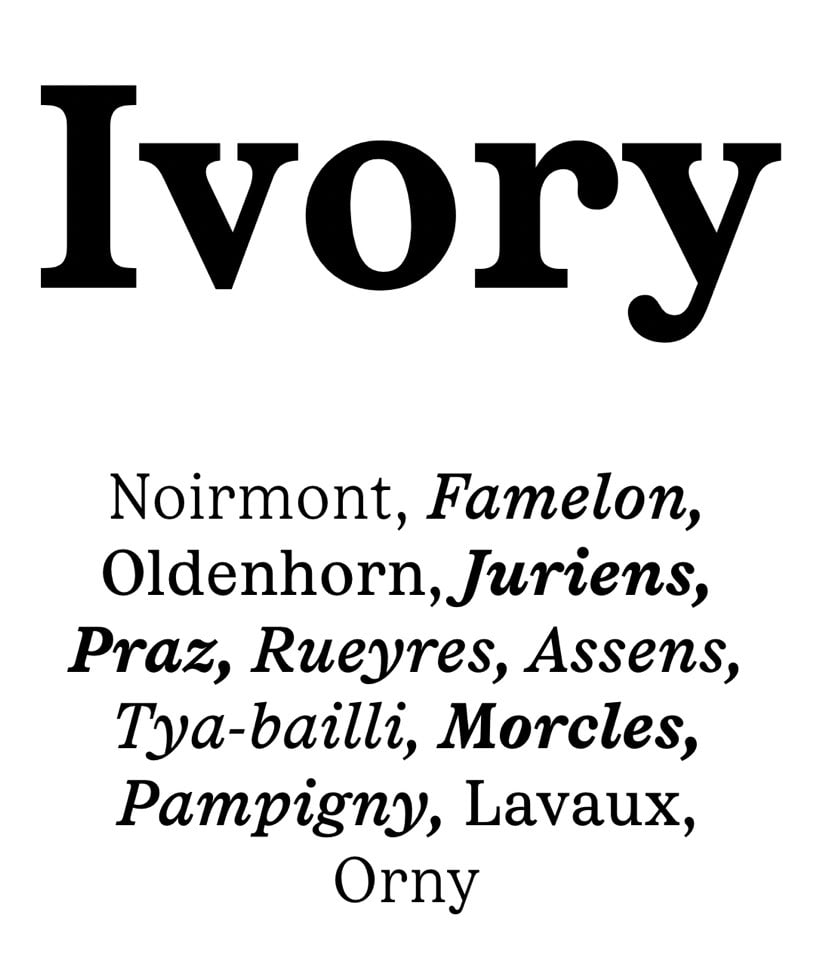 |
| |
|
|
|
Here in Australia, we’re soon voting in a referendum to change our constitution and allow for the well-overdue creation of an Indigenous advisory body. Many grassroots campaigns encourage people to talk to friends and family members who are still on the fence. These conversations can be difficult, especially if there isn’t a substantial overlap of political views.
Organisers and activists Kelly Hayes and Mariame Kaba recently published a fantastic piece on the difficulties of engaging with people with whom we do not fully identify and how to work with the discomfort that entails.
“Organizing is not a process of ideological matchmaking. Most people’s politics will not mirror our own, and even people who identify with us strongly on some points will often differ sharply on others.”
Hayes and Kaba stress that activism is about creating movements, not clubhouses. Feeling uncomfortable or even offended is often a sign that we’re operating in the so-called ‘stretch zone’:
“Effective organizers operate beyond the bounds of their comfort zones, moving into what we might call their ‘stretch zone’, when necessary. No one has to be able to work with everyone, but how far beyond the bounds of easy agreement can you reach? How much empathy can you extend to people who do not fully understand your identity or experience or who have not had the same access to liberatory ideas?”
Political transformation (including our own) is usually a messy process that requires empathy and room for error.
“Political transformation is not as simple as handing newcomers a new set of politics and telling them, ‘Yours are bad, use these instead’. Instead, we will sometimes have to accompany people along messy transformational journeys. And we must also remember that no matter how far we have come, we are still on our own messy journeys, and our own transformations will continue as we grow.”
Unfortunately, the unforgiving dynamics of social media often do not allow people the space and time to manoeuvre these messy, imperfect journeys:
“Social media can often foster a ‘zero-tolerance’ attitude about political ignorance or missteps. … For many people, social media is not an organizing tool but a realm of political performance and spectatorship. A trend has emerged in which some organizers will demand performances of solidarity and awareness on social media but then critique or even tear apart those performances when they fall short or are deemed insincere.”
There is so much I highlighted from this piece. I’m struck by how aptly it describes the skills and attitudes required by not just organisers but all of us in order to navigate and counteract the polarisation of society today.
“Even if we never develop a sense of mutual respect and understanding, or even come to like the people we’re working with, we can still build power with them. In many cases, we must. After all, the whole world is at stake. We must ask ourselves, how much discomfort is the whole world worth?” – Kai
|
| |
|
You receive this email because you subscribed to Dense Discovery, a weekly newsletter at the intersection of design, tech, sustainability, urbanism and more. Writing to you from Melbourne is Kai Brach. Do you have a product or service to promote in DD? Find out more about advertising in DD.
|
| |
Beam Me Up, Scotty! SPONSOR
|
Space: weekly, technical, curated.
We make it easy to keep up with everything in space right now. Expect features on upcoming missions, new science & technology highlights, and other (dare we say ‘stellar’) space content. We’re curated, technical, and exceptionally concise. Subscribe now – free, every week.
|
|
| |
Apps & Sites
|
|
Wikiloc lets you discover and share great outdoor trails for hiking, cycling and many other activities. There are currently 13,080,517 members exploring and sharing 45,991,368 outdoor trails and 82,871,944 photos. A mobile app lets you navigate using offline maps, provides current weather data and allows tracking by friends.
|
|
|
The Anori browser extension (for all browsers but Safari) offers a customisable dashboard for new tabs. It currently lets you choose from 12 built-in widgets like tasks, notes, weather, recently closed pages, bookmarks and more.
|
|
|
An app that ‘matches’ you with someone new once every 24 hours, inviting you both to have breakfast together. Why breakfast? “Because dinner sounds like a date, and lunch sounds like a work meeting. Breakfast is usually just that – breakfast.” I haven’t explored the inner workings of the app and can’t comment on the ‘match-making’ algorithm. The Breakfast is currently only available in New York, Lisbon, Berlin, London, Kyiv, and Paris.
|
|
Visualising gender inequality in street names
|
|
Did you know that only around 10% of streets and public spaces worldwide are named after women? This wonderful visualisation project highlights the gender inequality in street names in Barcelona, showing that women-named streets only account for 8% of all public spaces in the city.
|
|
| |
Favourite Books: Tim Sismey
|
|

Eight book recommendations by process and productivity consultant Tim Sismey
|
|
by Raymond Chandler
In the mean streets and wealthy hills of 1930s LA, crime and decadence abound. Philip Marlowe is the classic hard-boiled, wise-cracking PI doing the right thing in a world where doing the right thing is a lost art. I’ve re-read this every couple of years ever since I discovered Chandler as a teenager. (NB: contains 1930s attitudes towards homosexuality)
by Vladimir Nabokov
The final epic poem by a celebrated American poet, diligently collated and copiously annotated in the months after his death by his editor and friend. Or is it? Pale Fire blew my tiny mind the first time I read it, challenging everything I thought I knew about how to read books.
by Mark Z Danielewski
This sat on my shelf for five years before I first attempted it, and it took a further three attempts over ten years before it clicked for me. Cut from similar conceptual cloth to Pale Fire, it ups the stakes considerably; deeply unsettling, unexpectedly touching and at times physically demanding. Daunting to be sure, but hugely rewarding.
by Mick Herron
What happens to incompetent spies? In the UK, they are apparently sent to Slough House, where they are given mind-numbingly tedious busywork by an overweight bigot with poor personal hygiene and a drink problem in the hope that they quit. Slow Horses and its sequels are page-turningly gripping and belly-laugh funny, written with a stylish economy.
by Paul Beatty
In this – at times acutely uncomfortable – satire, an African-American slacker tries to put his hometown on the map by reintroducing slavery and segregation, but is stymied by systemic racism. Thought-provoking and powerful, also howlingly funny.
by Jasper Fforde
In a parallel 1985, Thursday Next works in the literary division of Swindon Police. When Jane Eyre is kidnapped from the pages of her own book, Thursday has to travel into the world of fiction to rescue her and restore the classic novel. Much sillier than it sounds, it’s packed with puns, references and stupid jokes. There are three direct sequels, and a reboot series I am less fond of.
by Jeff Vandermeer
A strange phenomenon has annexed and rewilded an ever-growing area of coastland. A survival thriller, a bureaucratic mystery and a gothic horror tale, with lashings of Weird Eldritch eco-terror. Don’t be put off by the uninspiring movie of the first book, Annihilation.
by Javier Mariàs
I discovered Javier Mariàs only last year in that most sombre of ways; by reading his obituary. His books hang glorious, intricate, spiralling sentences around thriller-style plots like some kind of Spanish Murder Proust. Here, the titular heroine discovers her husband is a spy, and ruminates on identity, truth and self-determination.
(Did you know? Friends of DD can respond to and engage with guest contributors like Tim Sismey in one click.)
|
|
| |
Books & Accessories
|
Lessons from 50 years of Patagonia
In their latest book, the founder of outdoor brand Patagonia, Yvon Chouinard, along with the company’s ‘chief storyteller’ Vincent Stanley, challenge business owners and leaders to rethink their businesses in a time of cultural and climate chaos. “Reduce your environmental footprint (and its skyrocketing cost), make legitimate products that last, reclaim deep knowledge of your business and its supply chain to make the most of opportunities in the years to come, and earn the trust you’ll need by treating your workers, customers, and communities with respect.” (Always worth adding the caveat that ‘green’ consumption is still consumption.)
|
|
Tending the land as people of place
A book to inspire a more reciprocal relationship with our communities, ourselves, and the natural world around us. Author Tomi Hazel Vaarde shares practical placemaking advice and ancient lore, as well as wisdom from Indigenous elders and teachers of permaculture – all with the aim to encourage living in harmony with our surroundings. “By weaving culturally sensitive stories, myths, and lessons from a range of customs and traditions including North American Indigenous communities and Vaarde’s own Quaker upbringing, Vaarde explores how holistic land and community management approaches can facilitate resolution of some of our most dire local and global crises.”
|
|
| |
Overheard on Twitter
|
|
Never anticipated how much of adulthood would just be unsubscribing from emails and breaking down Amazon boxes.
|
| |
Food for Thought
|
|
This is an essay about activism, organising and solidarity, but its lessons apply more generally and can help us cooperate and collaborate with people who have different views/politics: “People whose words and ideas don’t yet align with our own often need room to grow, and some people grow by building relationships and doing work – often in fumbling and imperfect ways. ... Political transformation is not as simple as handing newcomers a new set of politics and telling them, ‘Yours are bad, use these instead’. Instead, we will sometimes have to accompany people along messy transformational journeys.”
|
|
|
Adam Grant is making the case for replacing elections with a lottery system, also known as ‘sortition’. (See also my intro in DD220) Grant shows that our current system encourages narcissists and even psychopaths to run for office, an issue that randomised citizen assemblies would solve. “When you know you’re picked at random, you don’t experience enough power to be corrupted by it. Instead, you feel a heightened sense of responsibility: I did nothing to earn this, so I need to make sure I represent the group well. And in one of the Haslam experiments, when a leader was picked at random, members were more likely to stand by the group’s decisions.” (Possible paywall – free archived view)
|
|
|
Writer Anne Helen Petersen reflects on her experience in college, before tech gadgets made communication and media consumption all too easy and curated. She wonders whether the abundance of choices available to us now leaves us less creative and less satisfied. “Algorithms do the work for cheap, but when they reflect our taste back at us, it feels misshapen and insulting, a crude and unfair representation. When everything is available, all knowledge, all information, all entertainment ….nothing is perceived as valuable. Not the labor that creates the thing, not the person behind it, not the thing itself. The only valuable thing is our time, and if we spend it on something that isn’t amazing, isn’t exquisitely for us, we understand it as time wasted, instead of time gloriously wandering.”
|
|
| |
Aesthetically Pleasing
|
|
I’m pretty obsessed with The Tree Projects – the work of an Australian husband and wife team, dedicating their lives to the public education and conservation of giant trees and their forests. As part of their work, they climb giant trees in order to measure them. The photos (for sale as prints in their shop) are absolutely mind-boggling. Try to find the people in the (second) tree photo to get a sense of how giant these trees really are! Friends of DD enjoy a 10% discount on prints.
Become a Friend to access specials like this.
(via)
|
|
|
Thomas Duke visits movie/TV show locations, overlaying them with a print-out of a scene in that movie/show.
|
|
|
The Willam Ngarrang Retrofit is a great example of how we can refresh and upgrade dated apartment blocks and turn them into beautiful, more energy efficient modern homes. (I’m unsure of its affordability, though.)
|
|
|
Lineto’s Ivory (text, display and mono available) is a beautiful serif family with pronounced shapes and an elegant, confident character.
|
|
| |
Notable Numbers
|
|
The world’s corporations produce so much climate change pollution, it could eat up about 44% of their profits if they had to pay damages for it, according to a study by economists of nearly 15,000 public companies.
|
|
|
Even though the average family size in the US has declined from 3.8 in 1940 to 3.1 by 2021, the share of four-bedroom homes (out of all newly constructed homes) has increased from 20% in 1980 to 48% in 2022.
|
|
|
In a forthcoming paper, researchers at the University of California estimate that ChatGPT consumes approximately 500 millilitres of water, every time a user engages it with a series of 5 to 50 prompts.
|
|
| |
Classifieds
|
|
The Middle Dot is a free weekly online zine meant to offer a short break from the usual noise. It’s a chance to pause, reflect, find something new, and be inspired.
AisleOne Digest is a weekly newsletter on modern and vintage design, film, photography, music, and culture. Subscribe for free.
Wish government would stop being dumb with computers? Want to smash the ad-tech driven internet? Tired of VCs ruining stuff? You’ll love The Sizzle and its take on everything tech.
Look, it’s a book. It’s not like any other book. There’s no real way to describe it without ruining the surprise, you might have to take a chance.
|
|
Classifieds are paid ads that support DD and are seen by our 43,000 subscribers each week.
Book yours →
|
|
| |
The Week in a GIF
|
|
Reply with your favourite GIF and it might get featured here in a future issue.
|
|
| |
| |
|















